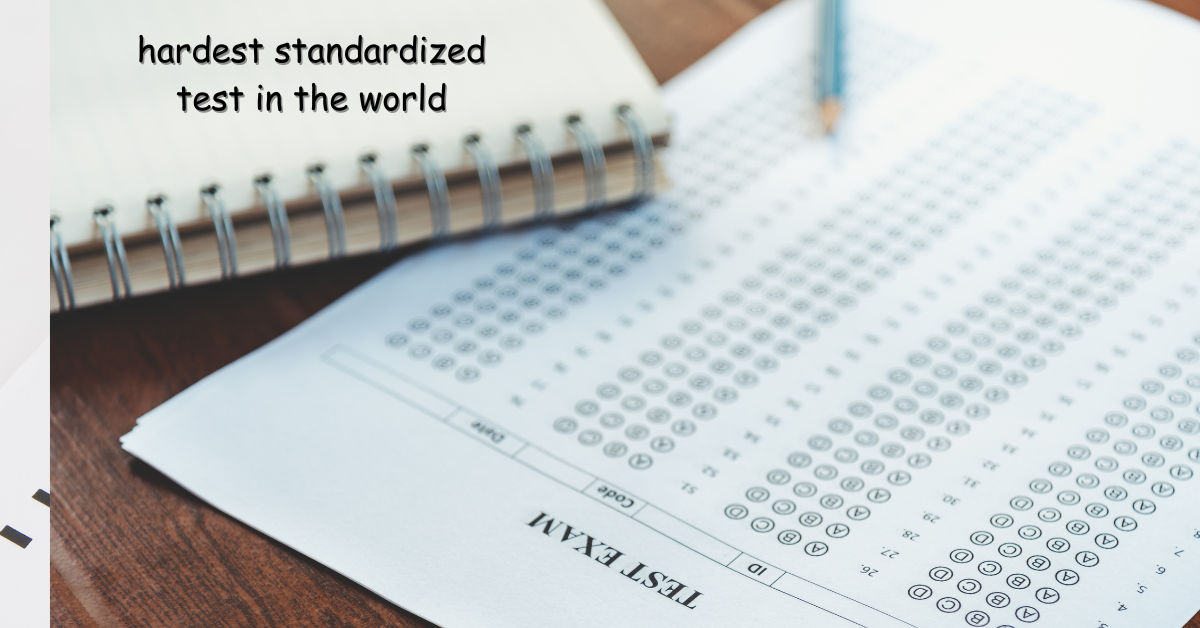The hardest exams in the world in the field of language and literature demand a deep understanding of cultural nuances, linguistic complexities, and literary masterpieces. The field is not exempt from rigorous examinations that serve as benchmarks for excellence.
- 1. Japanese Language Proficiency Test (JLPT)—N1 Level:
- 2. Certification of Proficiency in English (CPE)—Cambridge English:
- 3. Hanyu Shuiping Kaoshi (HSK), Level 6:
- 4. DALF C2 (Diplôme Approfondi de Langue Française):
- 5. Test of Proficiency in Korean (TOPIK)—Level 6:
- 6. Diploma in Translation (DipTrans) from the Chartered Institute of Linguists (CIOL):
- 7. Deutsches Sprachdiplom Stufe II (DSD II):
- 8. Sworn Translator Exam, Various Countries:
- 9. Russian State Exam in the Russian Language (TORFL)—Level 4:
- 10. National Spanish Examination (NSE) - AP Spanish Literature and Culture:
- Conclusion:
Here, we listed the hardest exams when it comes to language and literature. we also examined their duration, preparation, pass rates, candidates, and the profound impact they have on individuals aspiring to master the written and spoken word.
1. Japanese Language Proficiency Test (JLPT)—N1 Level:
- Duration: The N1 level of the JLPT assesses advanced Japanese proficiency, including complex reading, writing, and listening components.
- Preparation: Years of dedicated study are often required to master the intricate grammar, kanji characters, and vocabulary at this level.
- Pass Rate: Historically low, reflecting the challenging nature of the exam and the high level of proficiency required.
- Candidates: Aspiring to showcase a profound understanding of the Japanese language, individuals worldwide undertake the N1 level.
- Country: Japan
- Eligibility: open to anyone, regardless of nationality.
- Website: JLPT – N1 Level
2. Certification of Proficiency in English (CPE)—Cambridge English:
- Duration: The CPE, part of the Cambridge English Qualifications, assesses proficiency at the highest level, covering advanced language skills.
- Preparation: Intensive study and practice in English language usage, comprehension, and composition are essential.
- Pass Rate: historically low, as success indicates near-native proficiency in English.
- Candidates: A diverse global community of individuals aiming to prove their mastery of the English language.
- Country: United Kingdom
- Eligibility: Open to non-native English speakers.
- Website: Cambridge English – CPE
3. Hanyu Shuiping Kaoshi (HSK), Level 6:
- Duration: The HSK Level 6 assesses advanced proficiency in Mandarin Chinese, testing comprehensive language skills.
- Preparation: Extensive study of Chinese characters, grammar, and nuanced language use is crucial for success.
- Pass Rate: Relatively low, indicating a high level of proficiency and understanding of the Chinese language.
- Candidates: Aspiring to demonstrate fluency in Mandarin Chinese, individuals from diverse backgrounds undertake Level 6.
- Country: China
- Eligibility: open to anyone, regardless of nationality.
- Website: HSK – Level 6
4. DALF C2 (Diplôme Approfondi de Langue Française):
- Duration: DALF C2, part of the French language proficiency exams, evaluates mastery at the highest level, encompassing complex linguistic tasks.
- Preparation: An intensive study of French literature, advanced grammar, and cultural nuances is essential.
- Pass Rate: historically low, reflecting the challenging nature of the exam and the requirement for near-native proficiency.
- Candidates: individuals seeking to prove their command of the French language and culture.
- Country: France
- Eligibility: open to anyone, regardless of nationality.
- Website: DALF – C2
5. Test of Proficiency in Korean (TOPIK)—Level 6:
- Duration: TOPIK Level 6 evaluates advanced proficiency in the Korean language, including complex reading, writing, and listening skills.
- Preparation: Rigorous study of Korean grammar, vocabulary, and cultural nuances is necessary for success.
- Pass Rate: historically low, as success indicates a high level of proficiency in Korean.
- Candidates: individuals aiming to demonstrate their mastery of the Korean language.
- Country: South Korea
- Eligibility: open to anyone, regardless of nationality.
- Website: TOPIK – Level 6
6. Diploma in Translation (DipTrans) from the Chartered Institute of Linguists (CIOL):
- Duration: DipTrans assesses translation skills at a professional level, covering a variety of language combinations.
- Preparation: In-depth knowledge of source and target languages, cultural contexts, and translation techniques is imperative.
- Pass Rate: historically low, reflecting the demanding nature of the exam and the need for precise translation skills.
- Candidates: Aspiring and practicing translators seeking a recognized professional qualification.
- Country: United Kingdom
- Eligibility: Open to anyone, with varying language combinations.
- Website: CIOL – DipTrans
7. Deutsches Sprachdiplom Stufe II (DSD II):
- Duration: DSD II evaluates advanced German language proficiency, encompassing written and oral components.
- Preparation: Intensive study of German language and literature, as well as cultural understanding, is crucial.
- Pass Rate: Relatively low, indicating a high level of competency in the German language.
- Candidates: Individuals aiming to demonstrate proficiency in German, often for academic or professional purposes.
- Country: Germany
- Eligibility: open to anyone, regardless of nationality.
- Website: DSD II
8. Sworn Translator Exam, Various Countries:
- Website: (Country-specific; please provide the country for accurate information.)
9. Russian State Exam in the Russian Language (TORFL)—Level 4:
- Duration: TORFL Level 4 assesses high proficiency in the Russian language, including complex language tasks.
- Preparation: Intensive study of Russian grammar, literature, and linguistic nuances is required.
- Pass Rate: Historically low, indicating a high level of competency in the Russian language.
- Candidates: Individuals aiming to showcase advanced proficiency in Russian.
- Country: Russia
- Eligibility: Open to anyone, regardless of nationality.
- Website: TORFL – Level 4
10. National Spanish Examination (NSE) – AP Spanish Literature and Culture:
- Duration: The AP Spanish Literature and Culture exam evaluates advanced proficiency in Spanish literature and cultural understanding.
- Preparation: In-depth study of Spanish literary works, analysis, and cultural contexts is essential.
- Pass Rate: Historically low, reflecting the challenging nature of the exam and the need for advanced Spanish language skills.
- Candidates: Students aiming to showcase their mastery of Spanish literature and culture at an advanced level.
- Country: Global (primarily in the United States)
- Eligibility: high school students taking advanced Spanish literature courses.
- Website: NSE – AP Spanish Literature and Culture
Conclusion:
Language and literature exams are both challenging, as they necessitate individuals to showcase their linguistic proficiency and make valuable contributions toward the world’s comprehension of various languages and cultures. Mastering these exams requires linguistic skills. It also requires a deep appreciation for the nuances and intricacies that make each language unique and vibrant.



